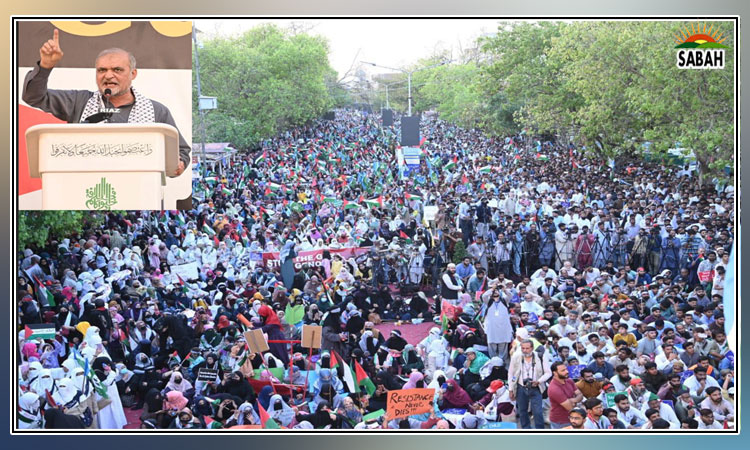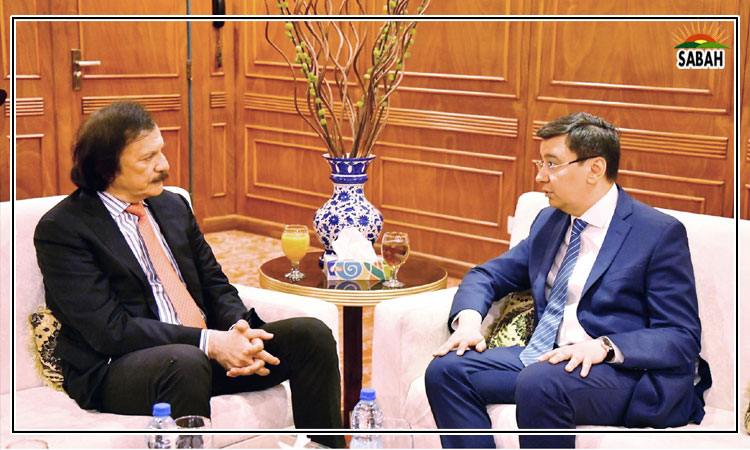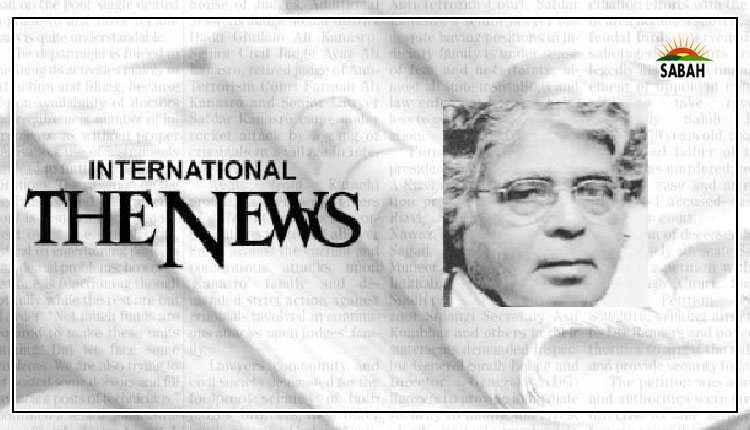Death of a humanist,,,Ghazi Salahuddin
When someone you had known for ages passes away, you are left to wander in the realm of memories. You wonder about how times change and also think about things that survive amid all this chaos that is life.
On Thursday, we lost Dr Haroon Ahmed in Karachi. It is because of the man he was and how he lived his life that I struggle with these thoughts. He was an exceptional person, a precious human being who strived, throughout his long life, for the well-being of the people of this country in the many roles he played.
Essentially, he was a psychiatrist. But he was also a social activist and a crusader for progressive social change. He remained closely associated with the movement for peace and human rights. As a psychiatrist, he was committed to promoting the mental health of not just individuals but society as such, in a collective sense.
When I talk about memories, I have particularly in mind the early years of the dark rule of Gen Ziaul Haq when we would frequently get together to share our thoughts and concerns. Almost all the friends we would meet then are no longer there. It was a difficult time but I feel that we were sustained by the kind of hope that I do not find at this time.
Another reference to a time gone by is that Dr Haroon was closely associated with the students movement of the fifties in Karachi. I was a school student at that time and was at the periphery of what could be seen as the launching of a leftist, liberal protest of some political significance.
Along with other student leaders such as Dr Mohammad Sarwar and Dr Rehman Ali Hashmi, Dr Haroon founded the Democratic Students Federation (DSF). Dr Adeebul Hasan Rizvi of SIUT was also a part of that movement. What is remarkable is that these individuals remained steadfast in their mission even after Pakistani society was usurped by orthodox and obscurantist elements. Naturally, Dr Haroon and Dr Adeeb consistently worked together in their endeavours. We are fortunate to have someone like Dr Adeeb in our midst, a beacon of light in a dark environment.
A major contribution that Dr Haroon made to the cause, so to say, was that he became a magnate for the progressive and liberal tribe. His house in Karachi was the venue where we generally met like-minded friends, including those visiting from other cities. What an excitement it would be to find, for instance, Asma Jahangir or I A Rehman in his drawing room.
And there was this get-together on May Day, which had become almost a ritual. What a pleasure it used to be to catch up with the usual suspects and seek strength in that companionship. It was our kind of social elite that would be there. I would say that it was a therapeutic experience, without highlighting the fact that Dr Haroon was a psychiatrist.
In all these activities, Dr Haroon had an equal partner: his wife Anis Haroon. She is a distinguished person in her own right. Her activism, mainly for the empowerment of women, is certified by the positions she has held in the NGO sector. One may hesitate to call them a power couple because this attribution would suggest an aura of authority and command. This couple was all love and friendship.
Even as a leader, which he unquestioningly was in the profession of psychiatry, Dr Haroon was remarkably unassuming and soft. Perhaps psychiatrists are meant to have this disposition, but Dr Haroon stood out for leading the profession to collectively respond to the mental health issues of Pakistani society. He established the Pakistan Association for Mental Health (PAMH) and co-founded the Pakistan Psychiatric Society.
Dr Haroon also served as the president of the International Physicians for the Prevention of Nuclear War and had the moral courage to oppose Pakistans acquisition of nuclear capability in 1998. He actively participated in the campaigns for peace and people-to-people contact between India and Pakistan.
His death has particularly evoked for me the memories of Zias time and the faces of some other friends we would bond with have surfaced on my minds screen. There was Aslam Azhar, I fondly recall. To a considerable extent, the arrest, trial and finally the execution of Zulfikar Ali Bhutto had cast a pall of gloom across the horizon. There was a general sense of bereavement and because of Zias censorship, popular expression about the situation was effectively throttled.
Those were the days when we would meet to share our anguish. In our group, Dr Haroon would elaborate on the psychic condition of society. It would be obvious to imagine that we were heartbroken and depressed. But, as I have said, there seemed some inner strength to look forward with some hope. We are now not confronted with that kind of a situation, though there is great confusion about the existing state of affairs. The surge in terror activities and in political disarray is alarming. In any case, I have less hope in the future now than I had in Zias time.
Now, it so happens that the day Dr Haroon was laid in his grave on Friday was the fourth of April the death anniversary of Zulfikar Ali Bhutto. The party Bhutto founded Pakistan Peoples Party (PPP) is, at least in my view, not the same party. In some ways, Bhutto himself was not able to live up to the great expectations that his initial campaign, revolutionary in some ways, had raised.
This also reminds me of the promise that many of us thought was held by a strong students movement in the early years of Pakistan. After all, students motivated by ideology and purpose have often changed the destiny of nations. But even when such movements do not prevail, some individuals remain faithful to their ideals and their values. Dr Haroon was one of them. Sadly, we do not have many like him.
Courtesy The News












